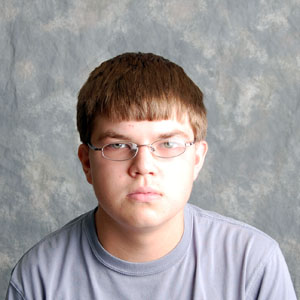Boyhood: Quietly Stunning
Moving life.
September 5, 2014
Directed by Richard Linklater (Dazed and Confused, Slacker), and shot over a 12-year span, Boyhood uses what might have been left on the cutting room floor of another film to create a fascinating portrait of a single, ever-changing life. Unlike your average Tarantino films (which also tend to experiment with time), the viewer never sees Mason’s (played by Ellar Coltrane) age flash across the screen at pre-determined points, as if to signal a sense of distrust between the director and the viewer.
Instead, the film drops subtle cues to signal change. A new school. “Do You Realize??” blasting from the speakers of a Mustang. A Wii. Ethan Hawke’s father figure discussing the Iraq War with his children. A brilliant, if unintended subtext about heroes. Characters come and go. There are the constants: a loving mother who tries and fails again and again to find love after a divorce; a father who comes in and out of his life, like a blip on the radar. There are also the variables: the boss who’s grooming him to be a fry cook; the teacher who berates him for spending too much time in a darkroom.
That’s not to single out Tarantino’s work; Boyhood is rather unlike anything put to film. The closest analogue is Michael Apted’s Up series, but nothing else covers a time span like Boyhood does in such a short amount of time. In two hours and 45 minutes, Richard Linklater) gives us glimpses into Mason Jr.’s life from six to 18 as he himself might remember it.
One way Linklater time stamps the film is through music. The well-curated soundtrack (picked by Linklater himself) reads like a who’s-who of popular rock and pop music that a kid growing up in the 21st century might hear. Coldplay’s 2001 hit “Yellow” opens the film, and Arcade Fire’s “Deep Blue” closes it. In between there is Wilco, Vampire Weekend, The Black Keys, Paul McCartney and Wings, Gotye, Bob Dylan, and Gnarls Barkley. The soundtrack isn’t just a group of songs thrown together either. Each song plays at a point in the film where it makes sense.
The film remains personal despite its enormous scope and running time (it is close to Transformers: Age of Extinction in running time and running time alone). A large part of this is its excellent script. The script never once feels stilted or staged, and instead feels wholly natural. There are references to characters unseen; jumps in time that in other films would be jarring but work so well here. This extends to the characters themselves as well: When Mason receives a Bible and a shotgun, he doesn’t receive it with a disgust one might expect for the creation of drama for drama’s sake, but with an uneasy acceptance one might expect of an actual human being.
Mason isn’t the only one who benefits from the script. Patricia Arquette and Ethan Hawke both turn in career-best performances as his parents, imbuing their parts with enough humanity to make it seem real. The other characters, including Lorelei Linklater as Mason’s sister, only add to this realism.
Boyhood should not have worked. It has no plot, is based entirely on a gimmick, and had a shooting process so complicated it would’ve made Kubrick proud. Yet, it works as something of a subtle epic. Not just because the group of linearly structured vignettes that the film is composed of work as a whole, but because the individual parts are so great the sum can’t help but be greater.


